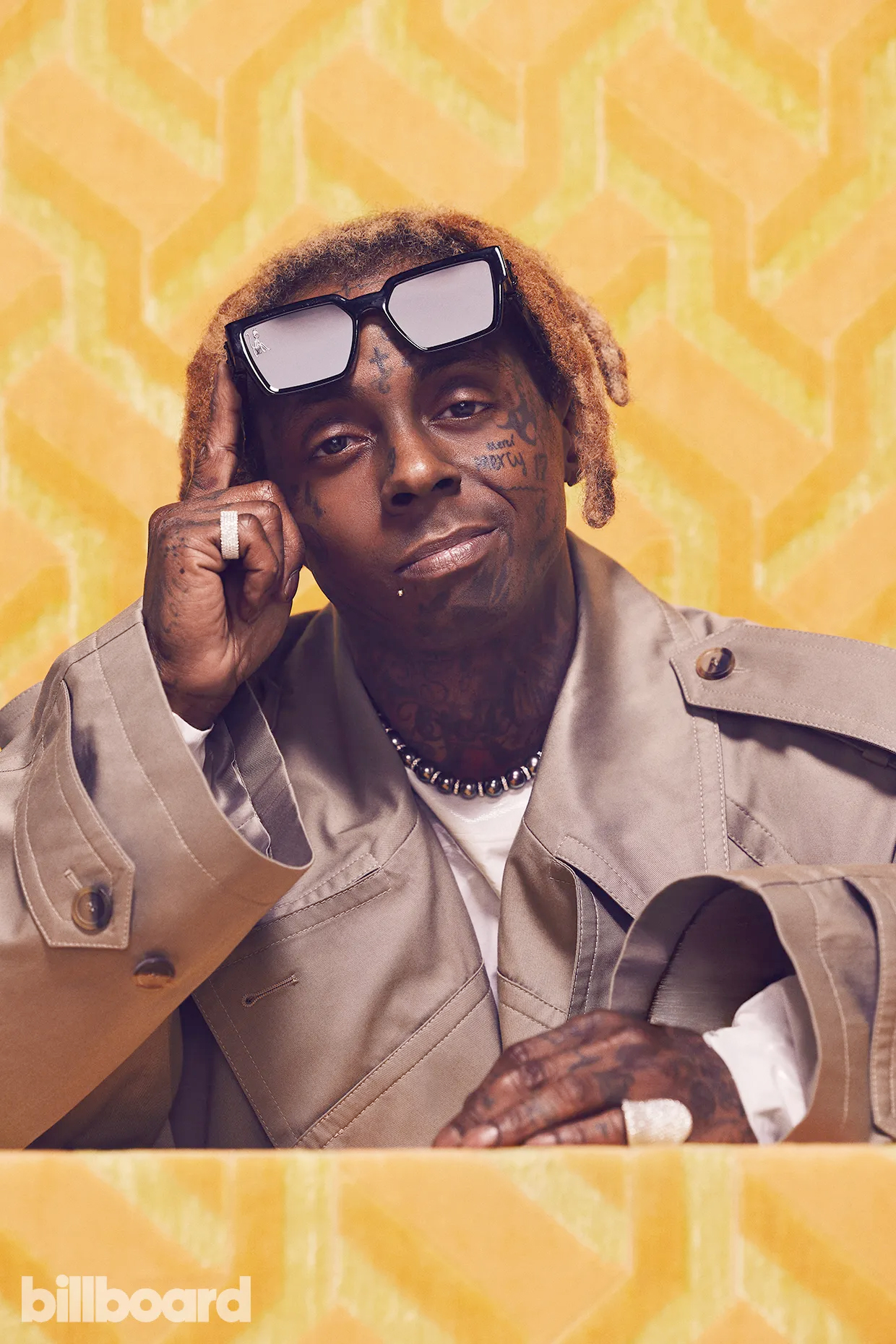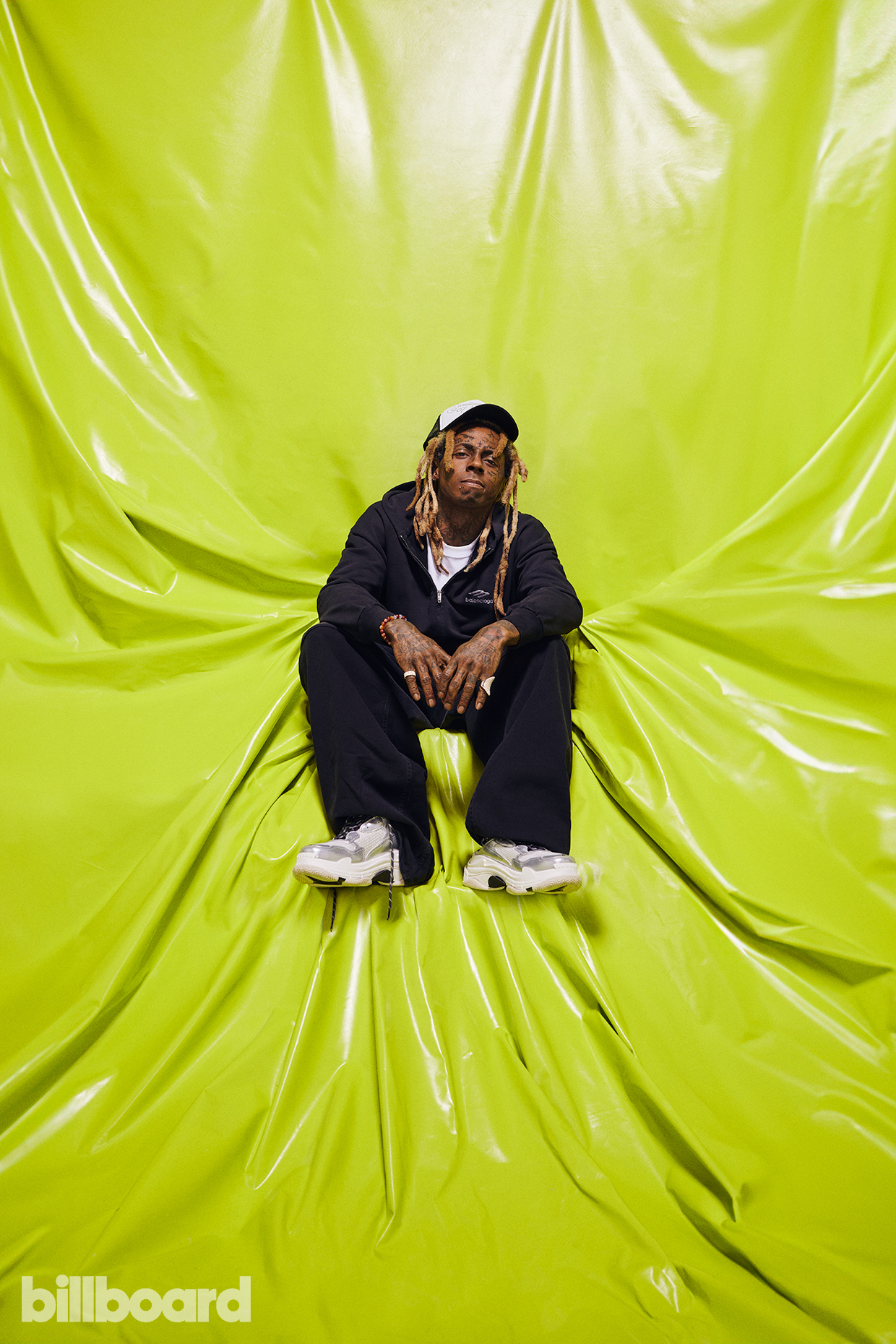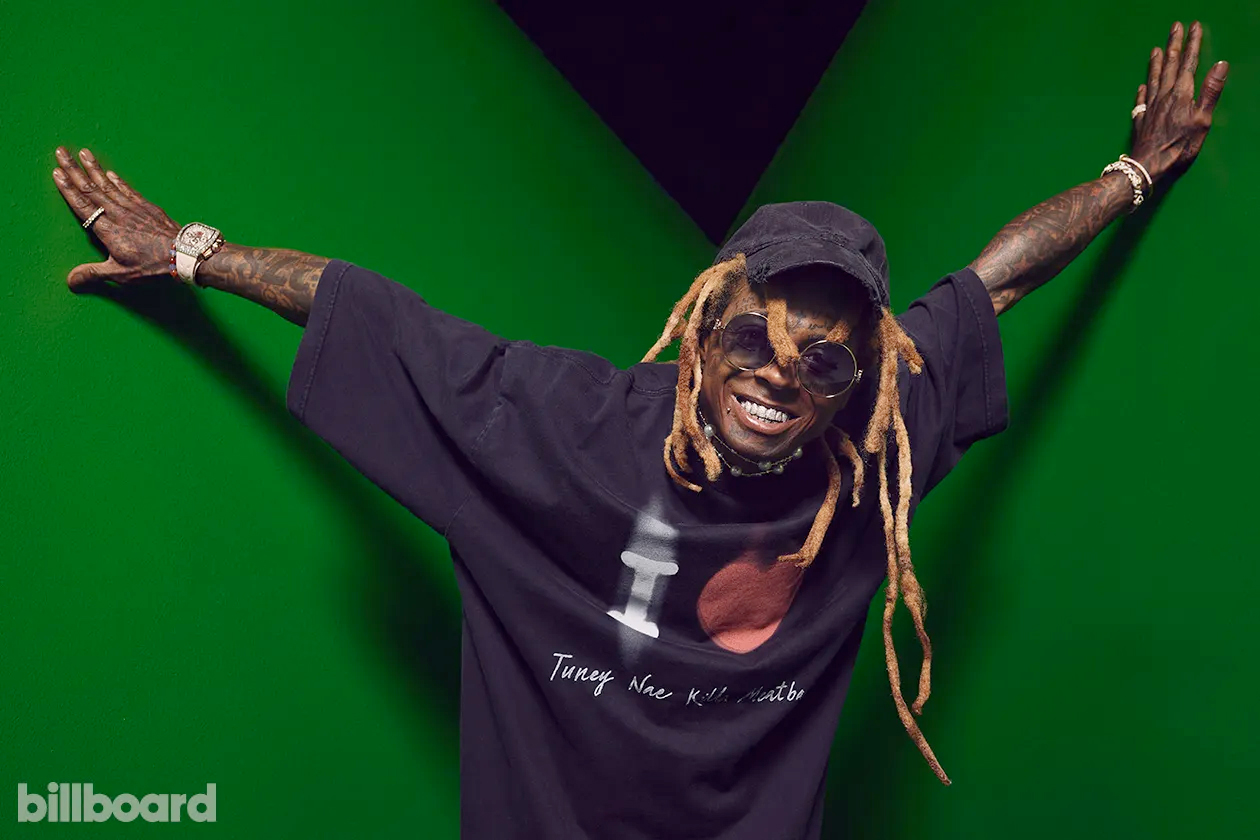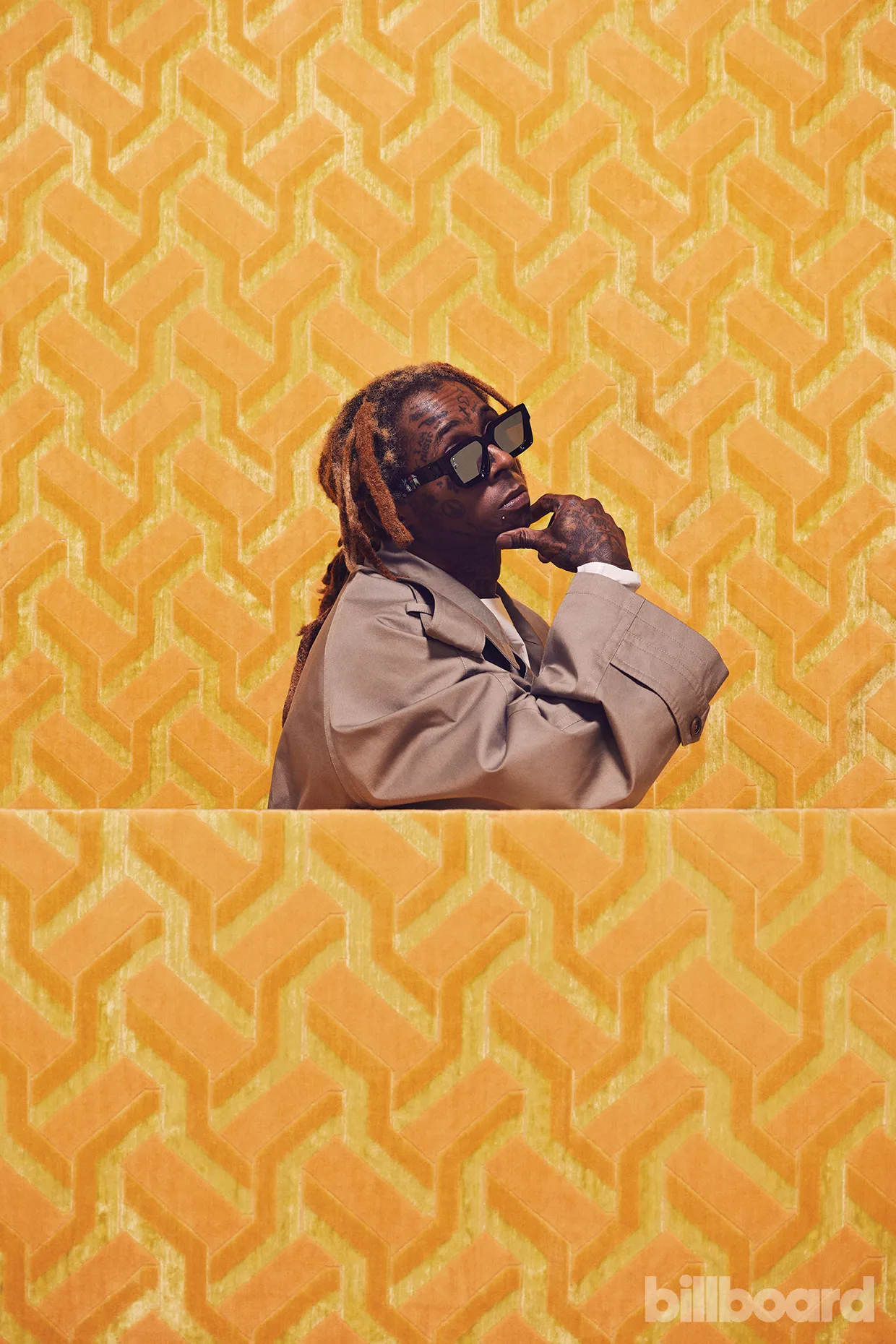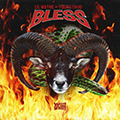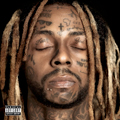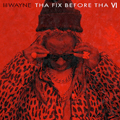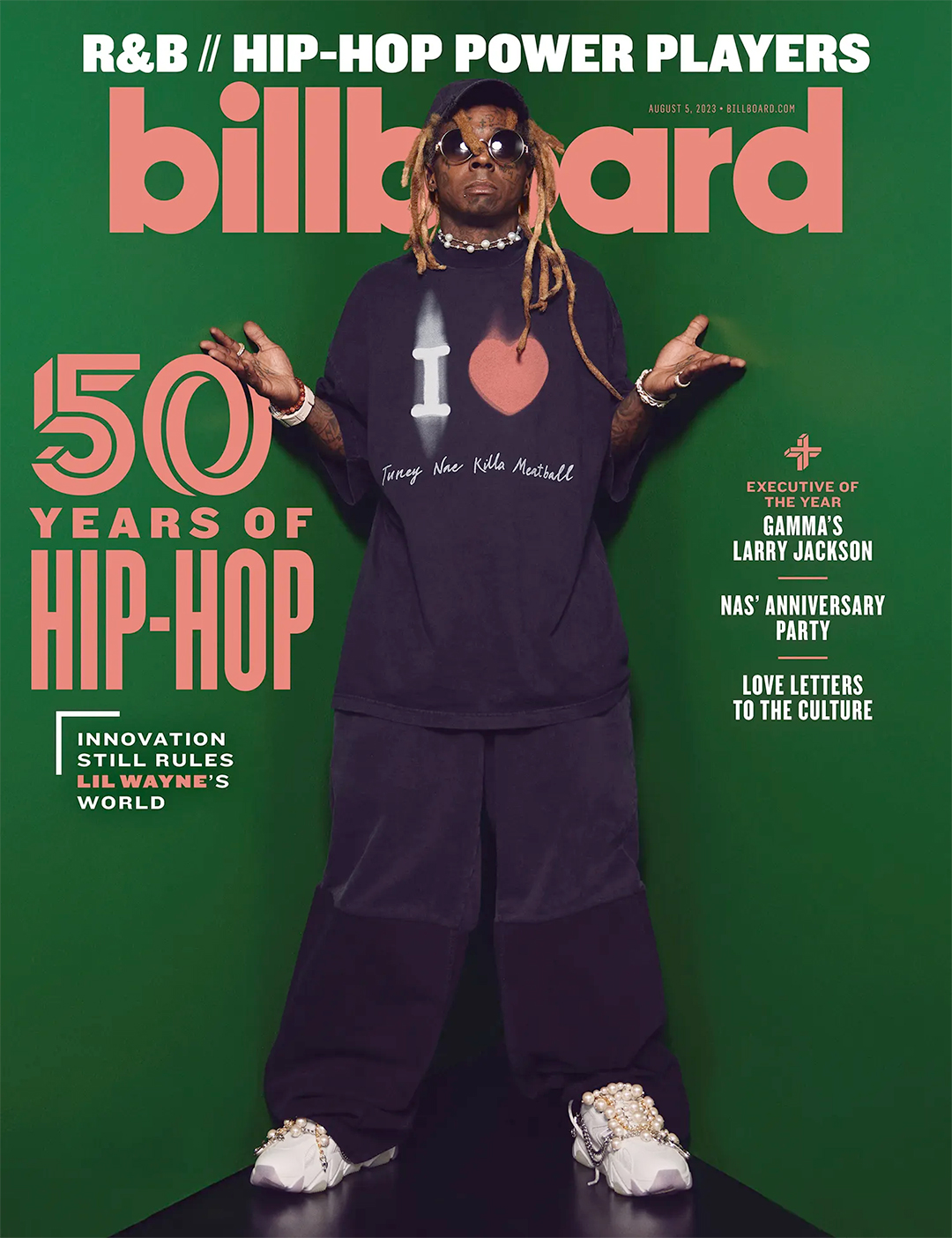
Lil Wayne graces the front cover of Billboard magazine‘s latest issue, which is all about the 50th anniversary of the hip-hop genre and will be available on newsstands this Saturday (August 5th).
For his interview, Tunechi sat down with the executive director of R&B/hip-hop at Billboard, Gail Mitchell, at Quixote Studios in Los Angeles on July 9th. While at the venue, Ramona Rosales captured some cool photos of Tune wearing an exclusive customized Balenciaga t-shirt that says “I love Tuney Nae Killa Meatball” (the nicknames for his kids).
In his cover story, Weezy talked about how he never stops learning, what the biggest change in music has been since he started his career, if he thinks rap is a young man’s game, inspiring the next generation of rappers, longevity, Young Money, what he thinks rappers need to have to be a success today, female rap, social media, artificial intelligence (AI), how mixtapes have changed, working on Tha Carter VI, what we can expect from that album, and much more!
Looking back on your career thus far, what does this momentous anniversary mean to you — and to hip-hop itself — since naysayers initially dismissed the fledgling genre as a fad?
I think it probably means more to me than I even know, because I am still in it, a deep part of it, and I’m still learning every day. Hip-hop will never be over. But I also think that maybe down the line, I’ll be able to answer that question better because I don’t think I know how much it means to me yet — because it means that much.
You signed with Cash Money before you were even a teen. Did you know that early that you could build a career as a rap artist?
I’ve been rapping since I was 7, actually. And I signed my deal when I was 11. I didn’t think about nothing else other than “We about to be the biggest everything.” (Laughs.) Like, I’m about to be this … I’m about to date her. I’m about to do … (Laughs again.) I was a kid, you know? It was like, what are you going [to want] for Christmas? As far as unforgettable moments go [back then], I would say that was probably my first time grabbing a mic as a kid at a block party, breaking my fear and rapping stuff that I had rapped in the mirror for, like, thousands of hours the night before.
So given your early vantage point, what are the biggest changes you’ve seen happen in hip-hop?
Right now is the time where I see the most change in our genre, because back then, I think it was just progress more than change; progression from what was already set before us and also us honoring what was set before us. But now it’s not that no one’s honoring what was before them — it’s just that the world has changed thanks to social media. There was no such thing as social media when I started doing this. But social media has changed the genre and opened doors. That’s definitely what helped contribute to its going global. [Social media] is good and bad.
Want to give examples of the good and the bad?
No. (Laughs.)
What has been the hardest part of your journey?
The hardest part for me is not being able to do [my music], for whatever reason. Not being able to record. Not being able to tour or do a show. That’s always the hardest part.
What one career lesson have you carried along since the beginning?
Never, never stop learning. That’s how you humble yourself. Humility goes a long way and it’ll keep you learning. I just try to get better and better and better.
Did you ever subscribe to the notion that hip-hop is only a young man’s game?
No, never. Because when I was growing up, all the rappers were way older than me. So I don’t know what that notion or narrative was, because it was never a young man’s game to me. I’ve always felt I had to fight my way in when I was a young man.
You’ve mapped a blueprint in terms of musical innovation and entrepreneurial pursuits like your Trukfit fashion line, the Young Money APAA Sports agency, the cannabis brand GKUA Ultra Premium and other business ventures. How do you perceive the role you’ve played in that aspect of rap’s evolution?
Expanding yourself and becoming a brand, getting involved in other businesses … the small part that I’ve played is probably just setting an example for those watching me and those coming after me. And with that said, I got that from watching Jay-Z, Reverend Run and Russ [Simmons] move. How they never stopped and just evolved, [especially] the way Jay has evolved. (Laughs.) I’m trying to follow stuff like that. And hopefully those coming up under me will follow my footsteps.
Do you have a wish list of other business opportunities you’d like to pursue?
Oh, no. I don’t have a list. You limit yourself when you put a list together. (Laughs.) But I can guarantee there has to be a feeling that makes me go forward with any [business] decision that I make. So therefore I know that it is organic.
You underscored your electric stage presence with 2010’s Rebirth, your creative leap into rock after ventures into blending rap with pop and singing. What influence has that had on next-gen artists with similar vibes, like Lil Uzi Vert, Travis Scott, Young Thug and Trippie Redd?
Sometimes people ask me how I feel about everybody looking like me, everybody getting tattoos, etc. That’s like seeing your kid come out of the room and looking just like you; it feels amazing. So the visible influence is kind of obvious because I know for a fact I didn’t get this look from anyone. There was no one that inspired this look. I just ran into looking like this. (Laughs.) But other than that, I hope that my work ethic [is influential as well].
How would you describe your work ethic? You seem like a 24/7 studio guy.
Exactly. So when other artists get around me, you know, they can smell that. It is impossible for them not to. And whenever they leave, they leave with something, as they remember that smell. And hopefully it does something for them.
So is your phone ringing off the hook with people asking you for advice?
No, not advice, not at all. That’s because they don’t have my number. (Laughs.) I have three sons and a beautiful daughter who get the advice.
On Billboard’s recent GOAT list of hip-hop’s top 50 artists, you landed at No. 7, between The Notorious B.I.G. at No. 6 and Drake at No. 8. What did you think of your placement?
That’s awesome. You would be happy to be anywhere on that list.
So which rappers would be in the top five of your own GOAT list?
There’s no specific order, but it’s simple. For me, it’s always been Missy Elliott, Jay-Z, UGK, Goodie Mob and Biggie.
Why those five? What’s the throughline for you in terms of their place in the genre’s evolution?
It’s because I organically grew up on [them]. You know, when you’re asked, “How’d you start listening?,” there’s a story for everybody … like, someone I know told me to start listening or whatever. But like I said, every decision I make is organic.
What does it take to break new hip-hop artists today?
Today, you have to know social media. If you don’t, you have to have a team that does. That said, the main thing today is what it has been yesterday and the day before yesterday: You just have to have real talent. Real, everlasting and undeniable talent. That’s how you still break an artist. Once you find that in an artist, then use and highlight that as much as you can, because it’s hard. There are lots of artists that want to be exactly what they see [and hear] on social media. They just want to be that instead of being what they actually can be. So get them to believe in what they are and what they truly can be. And even if it is a challenge, that challenge has always been one of the most fun things ever for me. I love it.
What exactly do you say or do when working with and developing new artists, since, as you just said, it’s so difficult to rise above everything that’s out there?
That you have to be at least good in whatever genre that you’re attacking, whether it’s hip-hop or not. And then you have to be willing to work as hard as you can to turn that good around into great. So come high at me, and you’ll be talking about the greatest. It’s that plain and simple. There are no keys. You just need to believe in what you’ve got and what you’re attacking, if you believe in it. Show me. Think harder, you know? Challenge yourself.
What’s been your own secret to longevity?
I don’t have a secret, I just work. I just keep going, I never stop. It’s just the work ethic, plain and simple. No more, no less; I don’t do nothing but my music. And also, in my mind, every single time I say the word “work,” I ask God to forgive me. Cuz I know this has never been a job. It’s just a dream come true. So that’s why I’ve never stopped.
Is it difficult for you to say that to someone who’s not there yet?
Not at all. I can’t tell any other artists that. But if you’re my artist, oh hell, yeah. I’ll let them know. You better go do that sh-t again. (Laughs.)
What are your thoughts on the growing ranks of women rappers? Why has it taken so long for this to happen?
My answer would be, honestly, that it just wasn’t as interesting to women, I don’t think, in the way that Nicki [Minaj], Meg [Megan Thee Stallion] and others are. It’s awesome. I don’t think they looked at or viewed it as something that they wanted to do and actually make a living from it. That’s another part of it. They probably didn’t look at this as something that they could make a living out of.
And perhaps the industry has become a bit more open-minded, too?
Oh, yeah. Definitely. We’re here for everything now.
Where is the future of hip-hop headed — any trends that you’re noticing?
Obviously, always up and bigger and better. Also, what I’m seeing now is the art and the ultimate artist being able to do anything. It’s like when you and I were talking about basketball. Back then, we were looking for a Kareem [Abdul-Jabbar]; if you were tall, we wanted you in the paint. Not even knowing how to shoot a three-pointer; we didn’t even want to see that. Now we’ve got these seven-footers coming in, and we need you [to] know how to dribble like Allen Iverson, how to shoot like Steph Curry. You need to know how to defend like GP [Gary Payton]. And that’s the ultimate artist. I believe that that’s where the genre is headed: artists able to do everything — from singing to tapping into different emotions.
What’s your opinion on artificial intelligence and its potential effect on creativity?
Someone asked me about that recently. And they were trying to tell me that AI could make a voice that sounds just like me. But it’s not me, because I’m amazing. I’m like, is this AI thing going to be amazing too? Because I am naturally, organically amazing. I’m one of a kind. So actually, I would love to see that thing try to duplicate this motherf–ker.
In the wake of AI and other emerging technology, have mixtapes lost their relevance?
The terminology or definition has changed, that’s all. Mixtapes can mean an album mix or anything now. But when it comes to Lil Wayne, everybody knows how I approach mixtapes. So my mixtapes won’t ever change.
Any hints as to what fans can expect when you perform Aug. 11 at the hip-hop 50th anniversary concert at Yankee Stadium?
Do not set expectations for me, because I will always exceed them. So just go there with a clear mind, expect the best — and I’ll be better than that.
Photo credit: Ramona Rosales.

